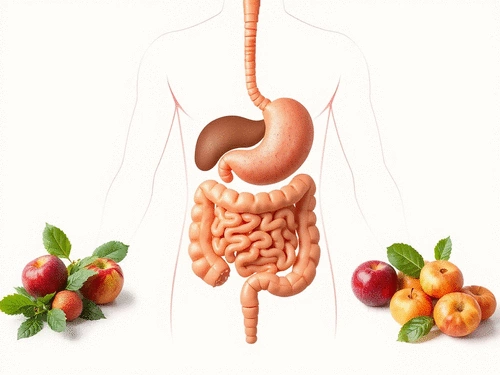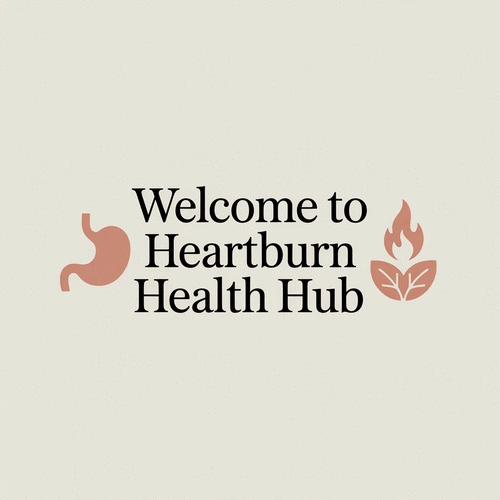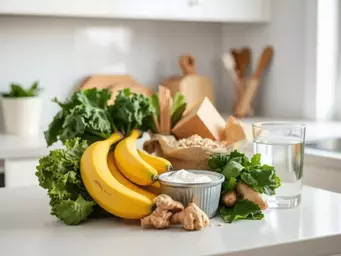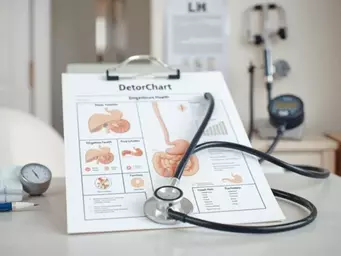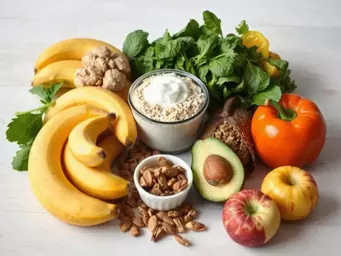Understanding your digestive system is key to enhancing your health and well-being. With various organs playing remarkable roles in the process, you can learn to appreciate how each component contributes to digestion and absorption. Ready to empower yourself with knowledge? Let's dive into the essentials!
What You Will Learn
- The digestive process begins in the mouth with chewing and saliva, which are critical for breaking down food and initiating digestion.
- The esophagus uses rhythmic contractions called peristalsis to transport food to the stomach while preventing backflow.
- The stomach plays a vital role by mixing food with gastric juices, aiding in protein digestion, and protecting against harmful bacteria.
- The small intestine is the primary site for nutrient absorption, with structures like villi and microvilli enhancing this process significantly.
- The large intestine absorbs water and electrolytes, compacts waste, and supports beneficial bacteria that contribute to digestive health.
- Understanding the roles of the pancreas and liver highlights the importance of digestive enzymes and bile in breaking down nutrients.
- Recognizing the impact of hydration, balanced diets, and mindful eating can substantially improve digestive health and overall well-being.
The Digestive System: A Journey of Transformation
This visual outlines the sequential process of digestion and highlights the key organs involved, demonstrating the coordinated journey food takes through the body.
1. Mouth & Salivary Glands
Process: Ingestion, mechanical breakdown (chewing), chemical breakdown (saliva enzymes).
Purpose: Initiates carbohydrate digestion, lubricates food for swallowing.
2. Esophagus
Process: Peristalsis (wave-like muscle contractions).
Purpose: Transports food to the stomach, prevents backflow.
3. Stomach
Process: Mixes food with gastric juices (acid & enzymes), protein digestion.
Purpose: Stores food, kills bacteria, forms chyme.
4. Pancreas & Liver
Pancreas: Digestive enzymes, bicarbonate.
Liver: Bile production (aids fat emulsification).
5. Small Intestine
Process: Further digestion, nutrient absorption (villi & microvilli).
Purpose: Maximizes nutrient uptake into bloodstream.
6. Large Intestine
Process: Water & electrolyte absorption, bacterial fermentation.
Purpose: Forms solid waste, prepares for elimination.
Understanding the Digestive System: Anatomy and Key Organs
As a gastroenterologist, I often find myself fascinated by how our bodies work, especially the digestive system. It’s a complex yet beautifully coordinated system that breaks down the food we eat, allowing our bodies to absorb the nutrients necessary for energy and health. In this section, we’ll explore the anatomy of the digestive system and the essential organs involved. For more in-depth information on how the digestive system functions, you can refer to resources from the National Institute of Diabetes and Digestive and Kidney Diseases (NIDDK).
From the moment food enters our mouths to the final elimination of waste, every part plays a crucial role in our digestive health. Understanding how each organ functions can empower you to make better choices that benefit your overall well-being!
The Role of the Mouth in Digestion
The journey of digestion begins in the mouth, where the act of chewing breaks food into smaller pieces. This process is more than just a task; it's the first step in digestion. When we chew, we mix food with saliva, which contains enzymes that start breaking down carbohydrates right away.
- Chewing: This mechanical process not only breaks down food but also prepares it for easier digestion.
- Saliva: It helps lubricate food, making it easier to swallow, while enzymes begin the chemical process of digestion.
- Taste: The mouth also allows us to enjoy flavors, which can influence our food choices and eating habits.
By paying attention to the act of chewing and savoring your food, you can enhance your digestive process significantly!
How Chewing and Saliva Initiate the Digestive Process
When food is chewed, it stimulates saliva production. This saliva not only moistens the food but also contains enzymes like amylase, which initiates carbohydrate digestion. The more thoroughly you chew your food, the easier it is for your body to break it down further down the digestive tract.
Next time you sit down for a meal, try to chew each bite longer! Not only will this help your digestive system, but it can also enhance your enjoyment of the meal.
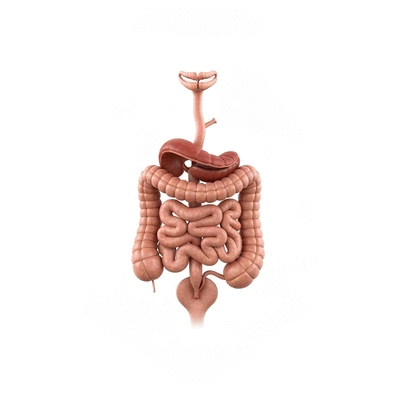
Functions of the Esophagus and the Journey to the Stomach
Once the food is chewed and mixed with saliva, it travels down the esophagus, a muscular tube connecting the mouth to the stomach. This organ plays a vital role in moving food from one end to the other.
- Transport: The esophagus is responsible for transporting food to the stomach using rhythmic muscle contractions known as peristalsis.
- Prevention: It also prevents the backflow of stomach contents through a valve called the lower esophageal sphincter.
Understanding how the esophagus works can help you appreciate the importance of avoiding habits like eating too quickly, which can disrupt the flow of digestion.
Peristalsis: How Food Moves Through the Esophagus
Peristalsis is the process of wave-like muscle contractions that move food through the esophagus. This action is crucial in ensuring that food reaches the stomach efficiently. If you think about it, it’s quite remarkable how our body functions without us needing to consciously control it!
Maintaining a healthy diet can help support this process. When the digestive system operates smoothly, it reduces the risk of issues like heartburn or acid reflux. For more detailed information on the physiology of digestion, you can consult scholarly articles like those found on NCBI Bookshelf.
The Stomach's Role in Breaking Down Food
After the esophagus, food finally lands in the stomach, where it encounters a highly acidic environment designed to break down food further. This is where the real magic happens!
- Dilution: The stomach mixes food with gastric juices, diluting it and starting the digestion of proteins.
- Storage: It temporarily stores food, allowing for gradual digestion and absorption.
- Protection: Stomach acid also helps kill harmful bacteria that may have entered with food.
By understanding the stomach's role, we can better appreciate how crucial it is to eat balanced meals that don’t overwhelm this organ.
Digestive Juices: The Power of Stomach Acid and Enzymes
The digestive juices produced in the stomach contain hydrochloric acid and digestive enzymes that play a significant role in breaking down food particles. These components help turn our meals into a semi-liquid mixture called chyme, which then moves on to the small intestine for further digestion and nutrient absorption.
Remember, maintaining stomach health is key to preventing discomfort and conditions like heartburn. Making informed dietary choices can significantly impact this process!
Exploring the Small Intestine: Digestion and Absorption
As chyme enters the small intestine, the focus shifts from digestion to absorption. This is where the majority of nutrient uptake occurs, thanks to unique structures lining the intestinal walls.
- Villi: These tiny, finger-like projections increase the surface area for absorption.
- Microvilli: Even smaller projections on the villi further enhance nutrient uptake.
- Enzymes: The small intestine also produces enzymes that continue breaking down food particles into their simplest forms.
By prioritizing a diet rich in nutrients, you can enhance your body's ability to absorb what it needs for optimal health!
The Importance of Villi and Microvilli in Nutrient Uptake
The villi and microvilli are crucial for maximizing nutrient absorption. These structures greatly amplify the surface area, allowing for efficient transfer of nutrients into the bloodstream. Without them, our bodies would struggle to obtain the vitamins and minerals necessary for good health.
Incorporating a variety of nutrient-dense foods into your diet can help support the health of your small intestine, ensuring you get the most out of what you eat.
The Large Intestine: Water Absorption and Waste Elimination
The large intestine plays an essential role in absorbing water and electrolytes from indigestible food matter. It also compacts waste, making it ready for elimination from the body.
- Water Absorption: Crucial for maintaining hydration and overall health.
- Bacterial Fermentation: Beneficial bacteria in the large intestine help ferment fibers and produce important nutrients.
- Waste Elimination: Prepares waste for excretion, ensuring that the body effectively gets rid of what it doesn't need.
Supporting the health of your large intestine is vital for preventing digestive issues and promoting overall wellness.
How the Large Intestine Contributes to Digestive Health
The large intestine is key in maintaining a healthy digestive system. By absorbing water and electrolytes, it helps form solid waste while also playing a role in the microbial community within our guts. This community can significantly affect our digestive health, making it essential to nourish it with a fiber-rich diet.
Don’t overlook the importance of hydration; drinking enough water can aid in the effective functioning of the large intestine!
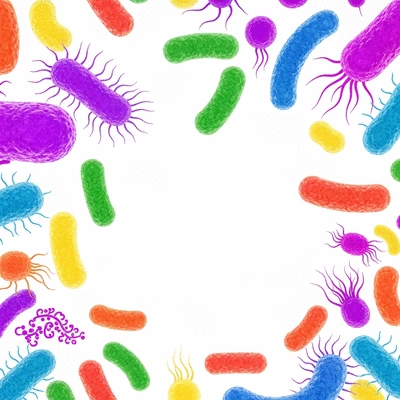
The Role of the Pancreas and Liver in Digestion
The pancreas and liver are vital organs that support digestion through the production of important substances. The pancreas produces digestive enzymes and bicarbonate, while the liver produces bile, which is stored in the gallbladder.
- Enzymes: The pancreas releases enzymes that further break down carbohydrates, proteins, and fats in the small intestine.
- Bile: Bile aids in the emulsification of fats, making them easier to digest and absorb.
Understanding the roles of these organs can help you appreciate the complexity of digestion and the importance of maintaining their health.
How Bile and Digestive Enzymes Aid in the Breakdown of Nutrients
Bile and digestive enzymes are essential for the efficient breakdown of nutrients. Bile emulsifies fats into smaller droplets, allowing enzymes to effectively digest them. This process is crucial for absorbing fat-soluble vitamins, such as A, D, E, and K.
Incorporating healthy fats into your diet can support both liver and pancreatic function, enhancing your digestive health!
The Impact of Salivary Glands on Digestion
Last but not least, the salivary glands are instrumental in the initial stages of digestion. They produce saliva that not only moistens food but also contains enzymes that kickstart the breakdown of carbohydrates.
- Moistening Food: Saliva helps in forming a food bolus that can be easily swallowed.
- Enzymatic Action: Salivary enzymes like amylase begin carbohydrate digestion right in the mouth.
Understanding the role of these glands highlights the importance of proper oral health and hydration in supporting digestion.
Understanding Their Contribution to Initial Food Breakdown
The salivary glands ensure that the digestive process begins as soon as we take a bite. By keeping the mouth moist and providing necessary enzymes, they prepare food for its journey through the digestive tract. Neglecting oral health can lead to complications that may affect digestion.
So next time you enjoy a meal, remember the unsung heroes of digestion—your salivary glands! They play a vital role in your overall digestive health.
Pro Tip
Did you know? Taking a moment to chew your food thoroughly not only enhances the enjoyment of your meal but also significantly aids digestion. When you chew, you stimulate saliva production and break down food into smaller particles, making it easier for your stomach and intestines to process. Aim for at least 20-30 chews per bite to maximize your digestive efficiency!
Recap of the Digestive System’s Importance
Understanding how our digestive system works is crucial for maintaining overall health. The digestive system plays a vital role in breaking down food, absorbing nutrients, and eliminating waste. It ensures our bodies receive the necessary fuel to function optimally. From the moment we take a bite, this complex system swings into action, involving various organs and processes that work harmoniously to support our well-being!
Key functions of the digestive system include:
- Ingestion: The process of taking in food through the mouth.
- Digestion: The breakdown of food into smaller components.
- Absorption: The uptake of nutrients into the bloodstream.
- Elimination: The removal of undigested food and waste from the body.
By recognizing the importance of each component of this system, we can make informed choices that promote better digestive health and overall wellness.
Why Understanding Your Digestive Health Matters
At Heartburn Health Hub, I often emphasize how essential it is to be aware of your digestive health. Many people overlook the signs their bodies are giving them. Ignoring discomfort can lead to more serious health issues in the long run. Being knowledgeable about your digestive system can help you recognize symptoms and take action before problems escalate!
Here are a few reasons why understanding your digestive health is so important:
- Prevention: By knowing what to watch for, you can prevent conditions like GERD and IBS from developing or worsening.
- Management: Understanding your digestive health equips you to manage existing conditions more effectively.
- Nutritional Choices: Knowledge about how different foods impact digestion can guide you toward healthier eating habits.
Keeping an eye on your digestive health not only improves your quality of life but also empowers you to take charge of your well-being!
Engage for Better Digestive Health
Taking Action: Simple Steps to Improve Your Digestive Wellbeing
Improving your digestive health is achievable with small, consistent changes to your daily habits. Here are some straightforward actions you can take:
- Stay Hydrated: Drinking plenty of water aids digestion and helps prevent constipation.
- Eat a Balanced Diet: Incorporate fruits, vegetables, whole grains, and lean proteins into your meals. For guidance on dietary practices that benefit digestive health, consider resources from Nutrition.gov.
- Practice Mindful Eating: Chewing thoroughly and eating slowly can enhance digestion.
- Get Moving: Regular physical activity stimulates digestion and overall gut health.
These simple steps can significantly impact your digestive health, making it easier to manage discomfort and enjoy your meals!
FAQs: Common Questions About the Digestive System
When to Seek Medical Advice for Digestive Issues
It's crucial to know when to consult a healthcare professional about your digestive health. If you're experiencing persistent symptoms such as severe heartburn, bloating, or changes in bowel habits, it may be time to reach out. Seeking early advice can help prevent complications and provide peace of mind!
How to Diagnose and Manage Conditions Like Lactose Intolerance and Celiac Disease
Diagnosing conditions like lactose intolerance or celiac disease typically involves a combination of symptom assessment, dietary review, and possibly some testing. If you suspect you might have one of these conditions, keeping a food diary can be beneficial. This can help track your symptoms and identify potential triggers. Consultation with a healthcare provider can lead to effective management strategies and dietary adjustments to improve your digestive health.
Recap of Key Points
Here is a quick recap of the important points discussed in the article:
- Ingestion: The process begins in the mouth where food is chewed and mixed with saliva.
- Digestion: Food travels through the esophagus to the stomach, where gastric juices further break it down.
- Absorption: The small intestine is critical for nutrient uptake, aided by structures like villi and microvilli.
- Elimination: The large intestine absorbs water and compacts waste for removal from the body.
- Healthy Practices: Staying hydrated, eating a balanced diet, and practicing mindful eating can enhance digestive health.

